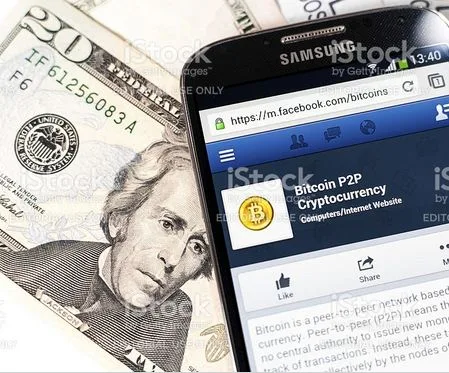The adoption of Bitcoin in developing countries offers the ‘unbanked’ access to financial services
By Clive Sanford
Bitcoins and other cryptocurrencies have loyal followers who believe that the future of mediums of exchange and stores of value is in currency constructs that are outside the purview of governments and central banks. They also have confidence that the technological underpinnings of cryptocurrencies give these a unique and lasting advantage. While most innovators and early adopters are from Europe and North America, more recently we have also seen a steep adoption rate among poor and marginalized countries that send money to and from developing countries on the African, South American, and Asian continents.
give these a unique and lasting advantage. While most innovators and early adopters are from Europe and North America, more recently we have also seen a steep adoption rate among poor and marginalized countries that send money to and from developing countries on the African, South American, and Asian continents.
In all of Africa, most of South America, and a great part of Asia, fiat currencies issued by governments have proven to be unreliable. We just need to assess the situation in Venezuela to see what happens when there is a collapse of the fiat system. Unless a country’s currency is exchanged for another currency, and you encounter the onerous fees for doing so, it is worthless outside the physical borders of the country where it is issued. People from these countries often want dollars, however governments everywhere are seeking to replace physical currencies with digital tokens.
 According to the World Bank, up to two billion adults throughout the world lack access to financial services. Whether they are from an impoverished urban community in the United States or an isolated village in the Amazon jungle, many people are disadvantaged by not being able to access banking infrastructure or credit. Cryptocurrencies give people the opportunity to save an appreciating asset while participating in a frequently aggressive rhetoric within their communities about the inequality of access and wealth within the system and the clash with the ideals of those in social and collaborative economic movements.
According to the World Bank, up to two billion adults throughout the world lack access to financial services. Whether they are from an impoverished urban community in the United States or an isolated village in the Amazon jungle, many people are disadvantaged by not being able to access banking infrastructure or credit. Cryptocurrencies give people the opportunity to save an appreciating asset while participating in a frequently aggressive rhetoric within their communities about the inequality of access and wealth within the system and the clash with the ideals of those in social and collaborative economic movements.
The entire third world is on the path to using cryptocurrencies. The surge in popularity of cryptocurrencies has helped developing countries by increasing the size of the user base and streamlining monetary transactions. In addition to lower transaction costs, the ways that this can be accomplished are by: shortening trade settlement times, securing the best exchange rate, easier access to banking, controlling inflation, and escaping capital controls. While cryptocurrencies have been touted as a solution for the unbanked of the developing world, there remain doubts as to the viability of the digital currency within countries with limited access to Internet services and infrastructure.
Infrastructure support
Blockchain technologies give people a way to access their global bank account with an open source wallet via the Internet. In addition to the issue of establishing trust in a poorly understood technology, crypto usage needs consistent availability of both the Internet and electricity. Technology does not operate in a vacuum, and similarly, cryptocurrencies cannot be deployed and used in impoverished countries without infrastructure support and an educated population that knows how to use the technology.
Smartphones are available to those who can afford to own them. A phone is the first thing people buy after food, shelter, and clothing. Bitcoin will become their savings vehicle. With 70% of the world’s population expected to have a smartphone by 2020 and undertakings such as Google’s Project Loon striving to deploy internet access to developing countries, there are growing opportunities for third world access to banking services through cryptocurrencies.
Lower costs and transfer times
The advantages that cryptocurrencies offer encourage developing countries to escape the despotic behavior of international banks and governments by lowering the barriers to trade and improving the ability to transfer money at an affordable cost. Cryptocurrencies and the underlying blockchain technologies allow the transfer of money across borders without paying the steep fees charged by traditional gatekeepers like SWIFT, Western Union, MoneyGram, Ria and others. Yet 80% of all global money transfers are still conducted via banks and conventional monetary transfer channels.
Through conventional channels, international payments can take from several days up to weeks to complete, often due to payments having to be routed through nostros (intermediary banks). Due to payment processing, currency conversion, a lack of strong liquidity, compliance fees, and treasury operations, banks absorb large costs if they engage in cross border settlements which result in a high fee structure. They often manipulate currency exchange rates to their advantage, resulting in a huge cost to customers all over the world. Instead of investing in fintech (financial technology) to streamline and make the system more efficient, the banks game the system by making money transfers a profit center.
In 2016, Santander, a major Spanish banking group, made $682 million solely from international money transfers, 10% of all of its total revenue. In addition to transfer fees, the bank also profited by controlling its foreign currency exchange rates that helped it earn another $338 million.
 On the Bitcoin network, you can send $50,000 for about $3. The receiver will get it in about 10 minutes. A traditional wire transfer can take days and the cost to send a domestic wire can vary from $35 to $70. International wires can cost from 1% to 15% of the total amount of money sent.
On the Bitcoin network, you can send $50,000 for about $3. The receiver will get it in about 10 minutes. A traditional wire transfer can take days and the cost to send a domestic wire can vary from $35 to $70. International wires can cost from 1% to 15% of the total amount of money sent.
Ripple has emerged as a direct competitor to the traditional money transfer services. It leverages its blockchain technology to serve as a real time monetary settlement system, currency exchange, and remittance network. It enables fast, inexpensive, services for international payments of nearly any size. Ripple accomplishes this by eliminating nostro accounts by directly sending remittances to the recipient via its blockchain.
The Bill & Melinda Gates Foundation is collaborating with Ripple and Mojaloop to create a real-time, interoperable payments platform on national scales. It is designed to reach the world’s poor who do not have a bank account by providing a way for financial providers, governments and mobile network operators to simplify and reduce the cost of developing inclusive payments platforms.
Escaping capital controls
Over the years, both gold and cash have been either confiscated or severely restricted through capital controls (government monetary restrictions) on the ability to access or move money. For example, you can’t just stroll through airport security with more than $10,000 in cash without declaring it. Even though it’s your money, governments insist that we report when and where we are moving it.
Governments oppose the use of cryptocurrencies because it gives their subjects a huge measure of extra freedom. With cryptocurrencies, we are in complete control of our own funds. We can store them on our own devices free from government intervention and if the cryptocurrencies are stored properly, it is impossible for the government to confiscate or control them.
Domestic monetary transactions
Although separated by an ocean, both Zimbabwe and Venezuela have experienced a devastating collapse of their currencies. Bitcoin has been a useful alternative for millions of citizens who need to perform monetary transactions that include buying food and other basic necessities. This is especially the case for online payments, which are restricted by banks, and for remittances, purchasing goods from overseas, and overcoming ever-stricter capital controls. Bitcoin also serves as a saving mechanism because cryptocurrencies are an appreciating asset that is resistant to effects of the periods of hyperinflation that these countries too often experience.
The big first world banks are resistant towards the growing popularity of cryptocurrencies and discourage the developing countries from adopting its usage. With a mobile phone penetration of over 80 percent in Kenya, alternative financial services can compete with the big banks. M-Pesa is a popular mobile phone-based money transfer, financing, and micro financing service that is used in conjunction with BitPesa to exchange money.
International money transfers
Many of the workers in developed countries are migrants who seek to earn wages that can be sent home to support their families. Migrants earn their wage in a foreign currency that is converted into their home currency when transmitting their funds. Every year, they transmit up to $500 billion from the developed countries to their relatives for an average cost of around 6% to 10% of the amount remitted.
At a cost of $4 billion per year, international transfers to Africa are the most expensive in the world. Both online and offline businesses continue to pay a steep price for transferring money abroad or even domestically as the majority of banks charge between 10% to 19% on any transfers to, from, and within African countries.
In East Africa, local innovators have introduced cryptocurrency systems to support cross-border transactions, as exemplified by initiatives like BitPesa. In Somalia almost 50 percent of the country’s gross national income is derived from international remittances from migrants that amount to about $1.2 billion. The inconvenience and high costs of traditional channels are an incentive for the migrants to use illegal channels that avoid taxes and transfer costs. Due to the lack of financial institutions, people in Somalia are often forced to receive or exchange remittances through the grey market network of Hawala brokers.
While transferring money to Southeast Asia is less expensive than it is to Africa, banks and intermediaries still charge high fees. Rebit is a Bitcoin based financial service whose clients can send money to the Philippines for a low fee. A U.S. based worker can convert dollars to Bitcoins, and the recipient can withdraw the money in pesos. This is has been useful for overseas foreign workers from the Philippines who sent almost $30 billion in 2015.
In developing countries where people survive on aid received from various national and international organizations, the availability of legitimate banking institutions can be sparse. Most of the largest NGOs in the world originate from the developed countries while their branch offices operate in the developing countries. These NGOs receive funds from around the world but need to dispatch their fiat currency to different developing countries by using traditional banking networks or other sources like Western Union. Some recognizable non-profit organizations such as the Red Cross and UNICEF now accept Bitcoin donations, thus enabling them to easily transfer their funds globally. Many other NGOs now accept donations that are denominated in Bitcoin.
Cryptocurrencies in Ecuador
Authorities in Ecuador are interested in protecting their seignorage privileges with their own digital currency. To also protect their influence on economic outcomes, in July 2014 they banned Bitcoin and other cryptocurrencies under the guise of ensuring consumer protection and eliminating malfeasance and illicit payments. Without the ability to print more money to fund their pensions and government operations, the government is even more protective of the economic tools that are available to them to control the economy.
Even though Bitcoin is illegal, its use is still prevalent in Ecuador between buyers and sellers in the country who list themselves on Localbitcoins.com. Bitcoin can also be purchased via PayPal like other online purchases.
____________________
Clive Sanford is a retired professor of IT who currently resides in Uruguay. He is the founder of the expatsphere.com expat website for Uruguay.





















